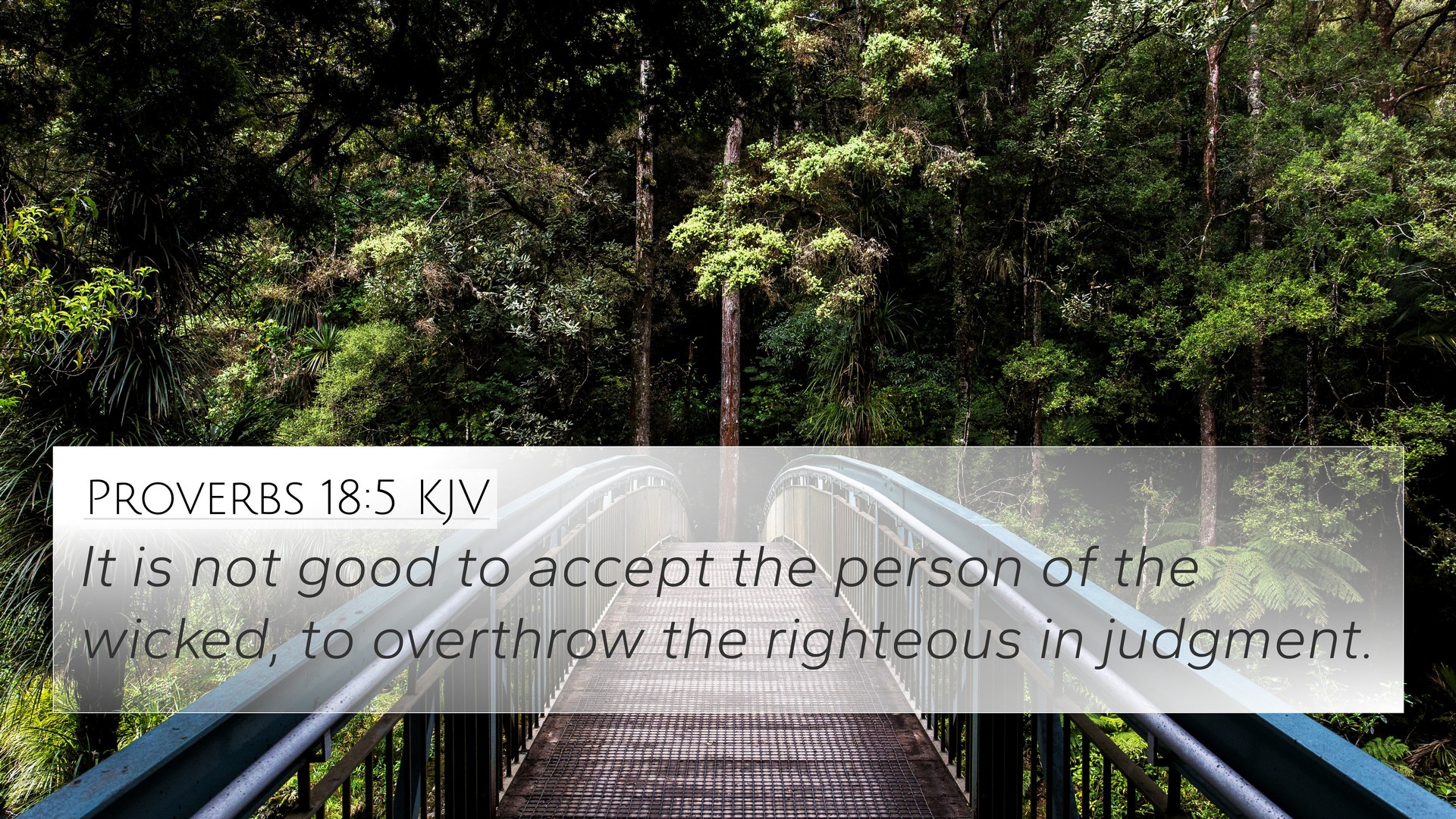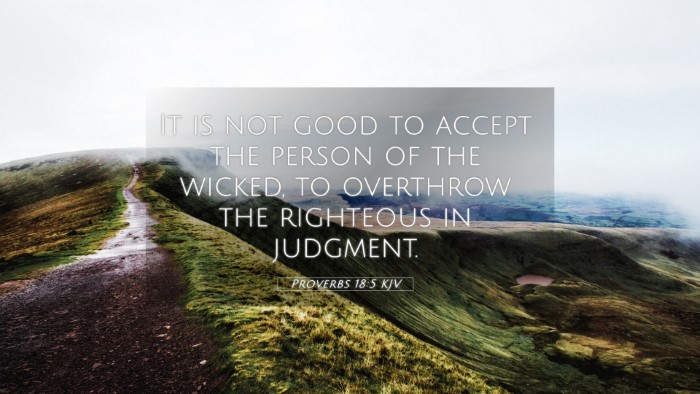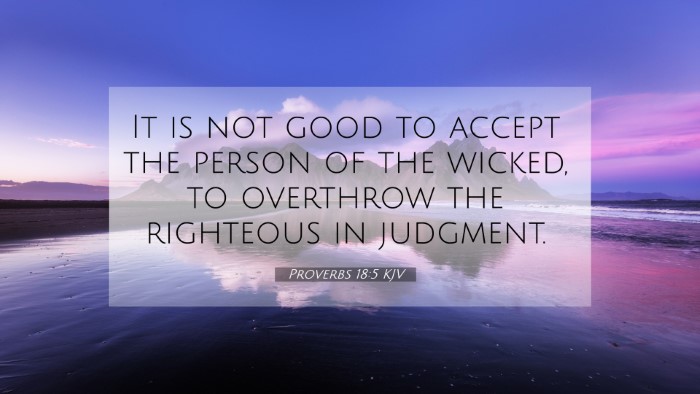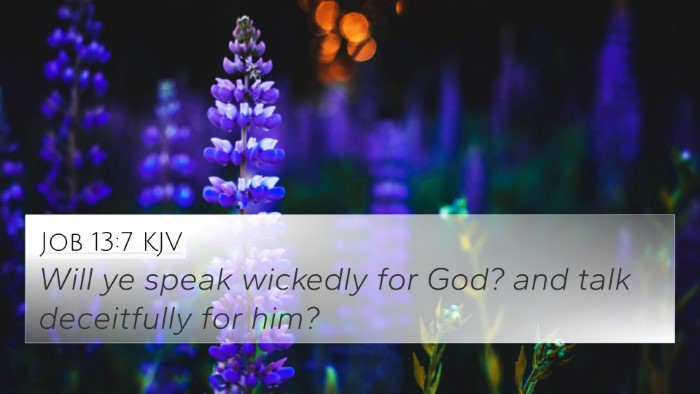This section features a detailed cross-reference designed to enrich your understanding of the Scriptures.
Below, you will find carefully selected verses that echo the themes and teachings related to Proverbs 18:5 KJV. Click on any image to explore detailed analyses of related Bible verses and uncover deeper theological insights.
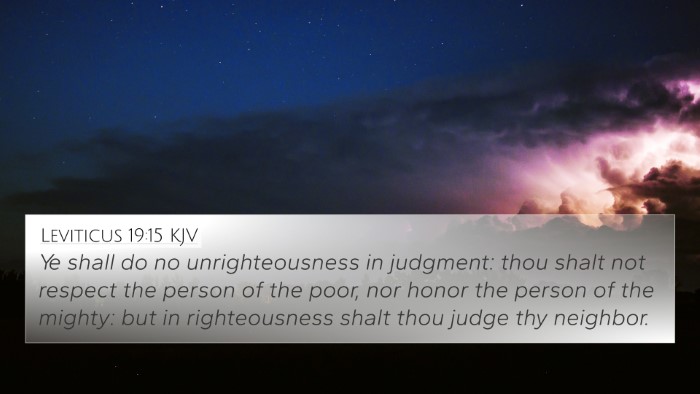 Leviticus 19:15 (KJV) »
Leviticus 19:15 (KJV) »
Ye shall do no unrighteousness in judgment: thou shalt not respect the person of the poor, nor honor the person of the mighty: but in righteousness shalt thou judge thy neighbor.
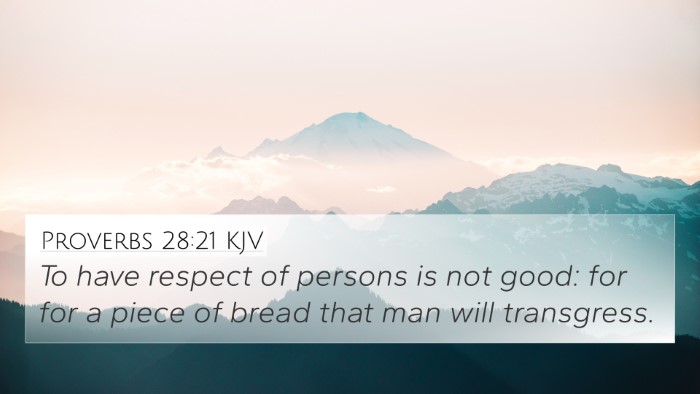 Proverbs 28:21 (KJV) »
Proverbs 28:21 (KJV) »
To have respect of persons is not good: for for a piece of bread that man will transgress.
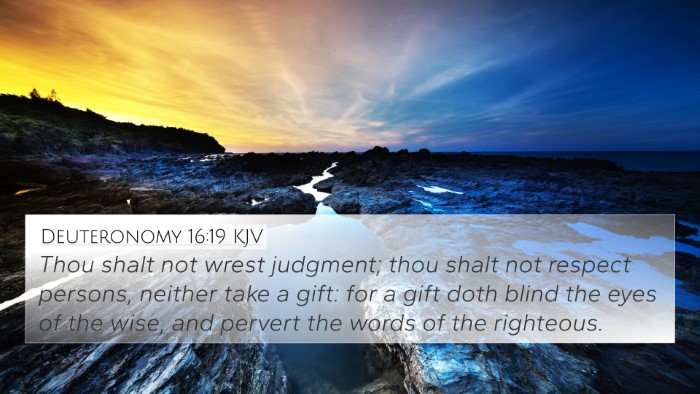 Deuteronomy 16:19 (KJV) »
Deuteronomy 16:19 (KJV) »
Thou shalt not wrest judgment; thou shalt not respect persons, neither take a gift: for a gift doth blind the eyes of the wise, and pervert the words of the righteous.
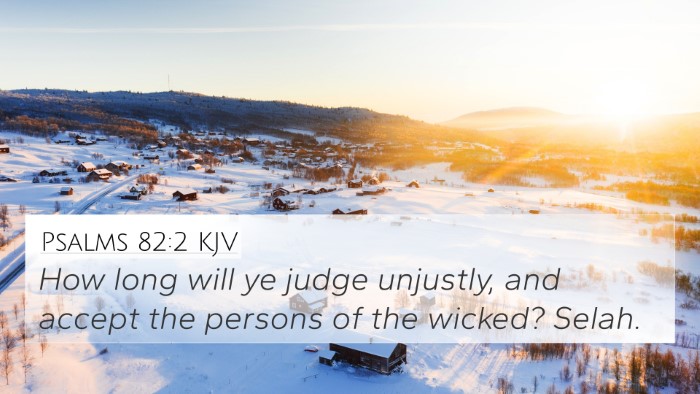 Psalms 82:2 (KJV) »
Psalms 82:2 (KJV) »
How long will ye judge unjustly, and accept the persons of the wicked? Selah.
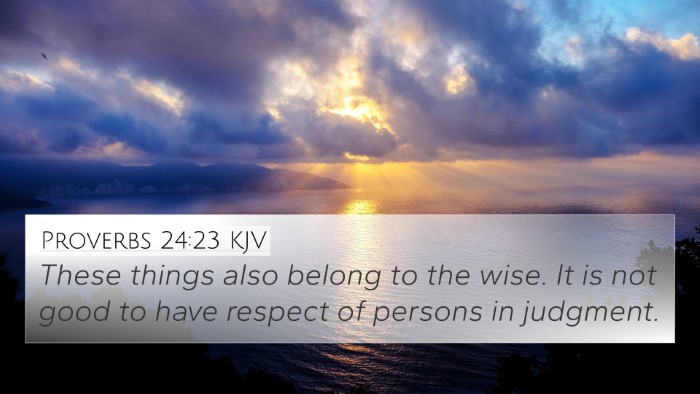 Proverbs 24:23 (KJV) »
Proverbs 24:23 (KJV) »
These things also belong to the wise. It is not good to have respect of persons in judgment.
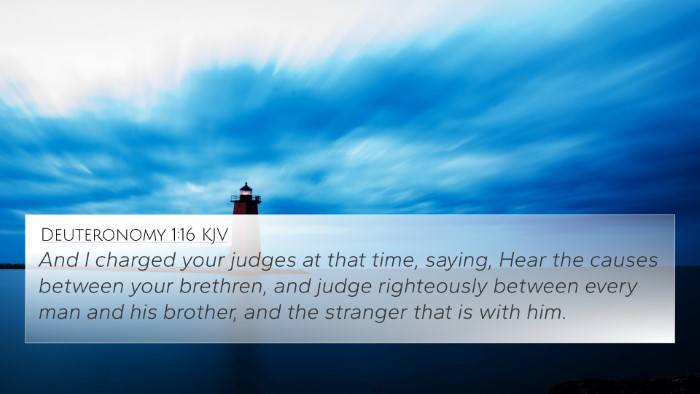 Deuteronomy 1:16 (KJV) »
Deuteronomy 1:16 (KJV) »
And I charged your judges at that time, saying, Hear the causes between your brethren, and judge righteously between every man and his brother, and the stranger that is with him.
 Isaiah 5:23 (KJV) »
Isaiah 5:23 (KJV) »
Which justify the wicked for reward, and take away the righteousness of the righteous from him!
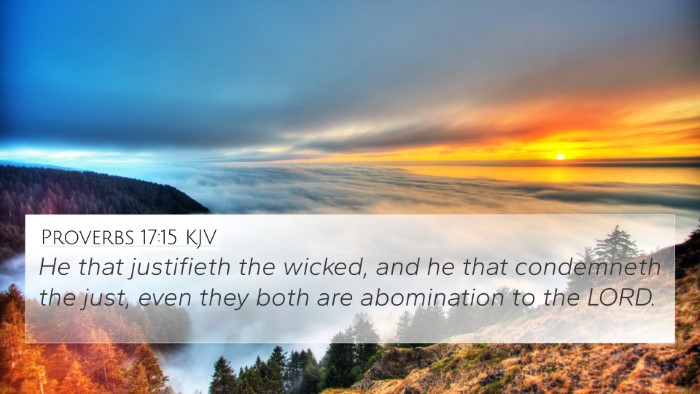 Proverbs 17:15 (KJV) »
Proverbs 17:15 (KJV) »
He that justifieth the wicked, and he that condemneth the just, even they both are abomination to the LORD.
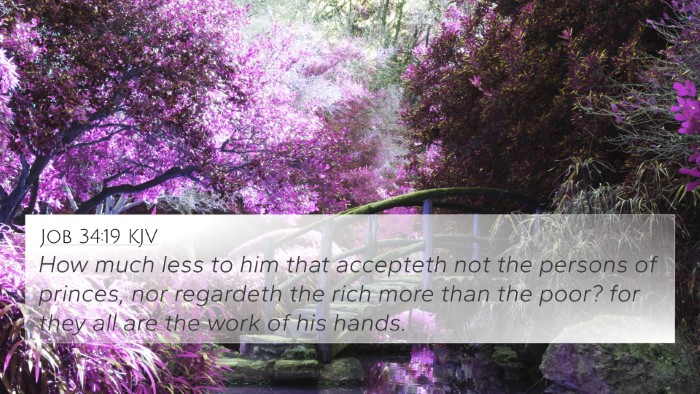 Job 34:19 (KJV) »
Job 34:19 (KJV) »
How much less to him that accepteth not the persons of princes, nor regardeth the rich more than the poor? for they all are the work of his hands.
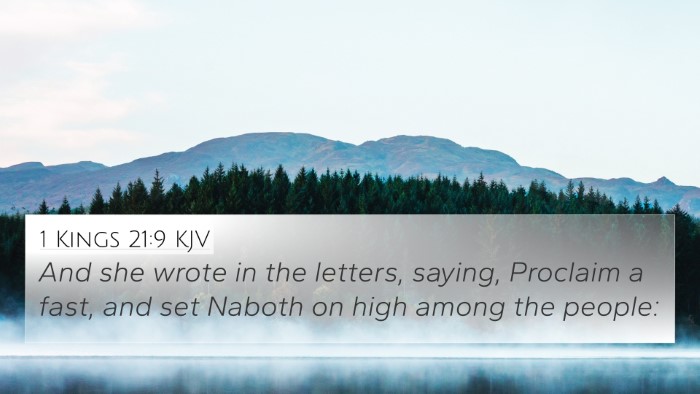 1 Kings 21:9 (KJV) »
1 Kings 21:9 (KJV) »
And she wrote in the letters, saying, Proclaim a fast, and set Naboth on high among the people:
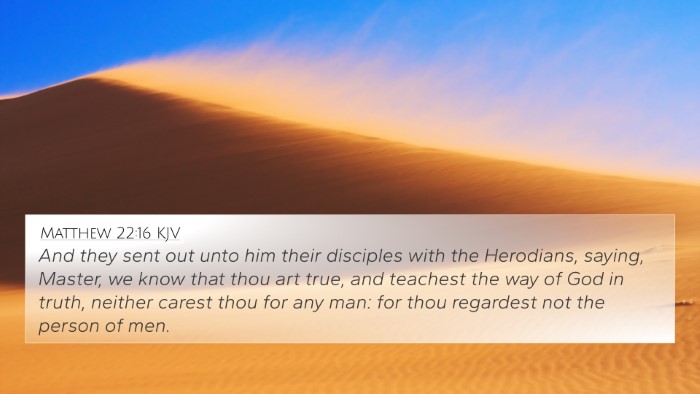 Matthew 22:16 (KJV) »
Matthew 22:16 (KJV) »
And they sent out unto him their disciples with the Herodians, saying, Master, we know that thou art true, and teachest the way of God in truth, neither carest thou for any man: for thou regardest not the person of men.
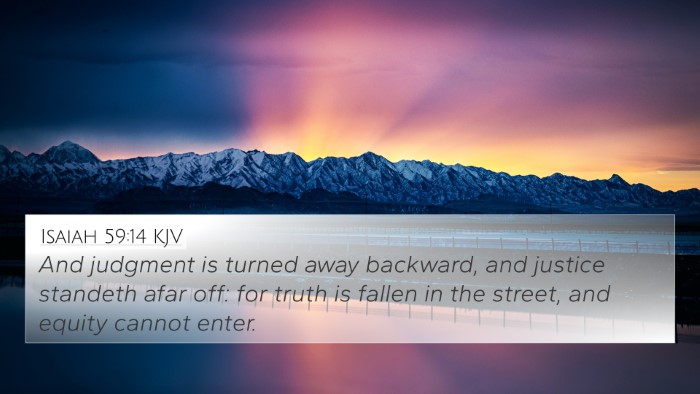 Isaiah 59:14 (KJV) »
Isaiah 59:14 (KJV) »
And judgment is turned away backward, and justice standeth afar off: for truth is fallen in the street, and equity cannot enter.
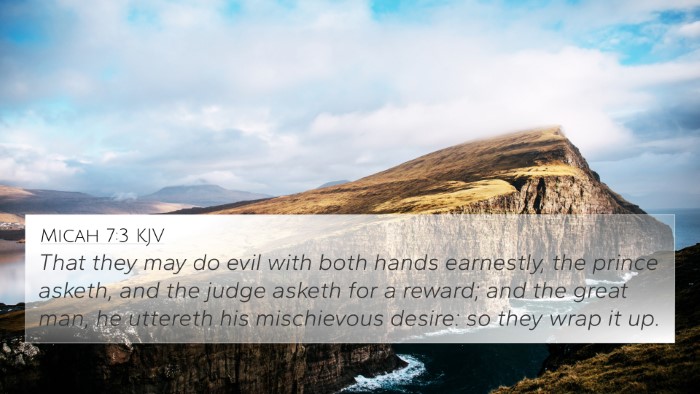 Micah 7:3 (KJV) »
Micah 7:3 (KJV) »
That they may do evil with both hands earnestly, the prince asketh, and the judge asketh for a reward; and the great man, he uttereth his mischievous desire: so they wrap it up.
